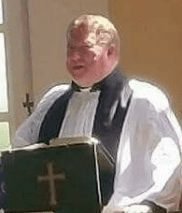We live in an age when information is available to all and sundry. Some would say that we have too much information at hand. Just look at your smartphone. It has more computing power than the computers that took the first astronauts to the moon and back 50 years ago. Google knows all and puts it in our hands–but what do we do with the information?
Remember when the equivalent of Google was a set of encyclopaedias? My parents bought me one before I was able to read. They never really encouraged me to read them, but as I got older, one of the volumes, if not several, were generally within reach. My cousin said one of her favourite childhood memories was watching me get on the school bus with encyclopaedias under my arm. I don’t recall that, but I do remember being a giant sponge for information of all kinds. Nothing escaped my interest, except for algebra. I never liked it: too abstract. Geometry I could get my head around, but algebra held as much interest as a sore thumb. It was to be avoided. Some things you can avoid, but some you can’t. And some so important that there’s only one answer.
The summer of the year I turned 13 was a big one for me. Not only was I going to be a teenager, but it meant that I was old enough to go with my dad, uncle, and cousins on the big deer hunt that autumn. Little did I know that it was going to be my last few months with my grandpa. He’d just turned 77.
One day in the midst of summer, he called the house. He wasn’t one to use the phone much, so it was a surprise. He asked my mom if I was there. She said yes. “Well, bring him to see me. I need to talk to him.” It took my mom by surprise too–so much so that she didn’t ask a single question.
She dropped me off. Grandpa was different than normal. There was no joking or teasing. He told me to go in the living room, where I found a chair in the middle. He said, “Sit down, son. I want to talk to you.” I sat down, but he remained standing. I’d never seen him so formal.
He started, “I want you to promise me something.” “What’s that?” I asked. He replied, “I want you to promise me that you will go to college and that you won’t stop going ’til you can’t anymore.” I told him that was my intention. Then he said, “I want you to promise because I know if you promise that you’ll do it.” Keeping one’s word was the apex of character as far he was concerned. So I promised again. He smiled, then sat down, and went on. “The reason I wanted to talk to you about this is because there are two ways in this world to make a living. You can make it with your head or your back. But using your head is a sight easier.” I’ve known a lot of people with advanced degrees never able to say so much with so few words. He was using his knowledge and experience to shape my understanding.
Grandpa was good but Jesus was the master of such verbal economy. Jesus once asked the disciples who people thought he was. They told him. Then he narrowed it down to Peter. He put him in a corner when he pushed further, asking, “But who do you say that I am?” Peter’s answer was short and sweet. “You are the Christ, the son of the living God!” He didn’t just possess that knowledge; he acted on it, and did so until his life was required for his faithfulness.
A lot of people say they “know” Jesus, but there’s a difference between head knowledge and experiencing it and living it out. What are you going to do with your knowledge of Jesus?
Originally appeared in the Caymanian Times


